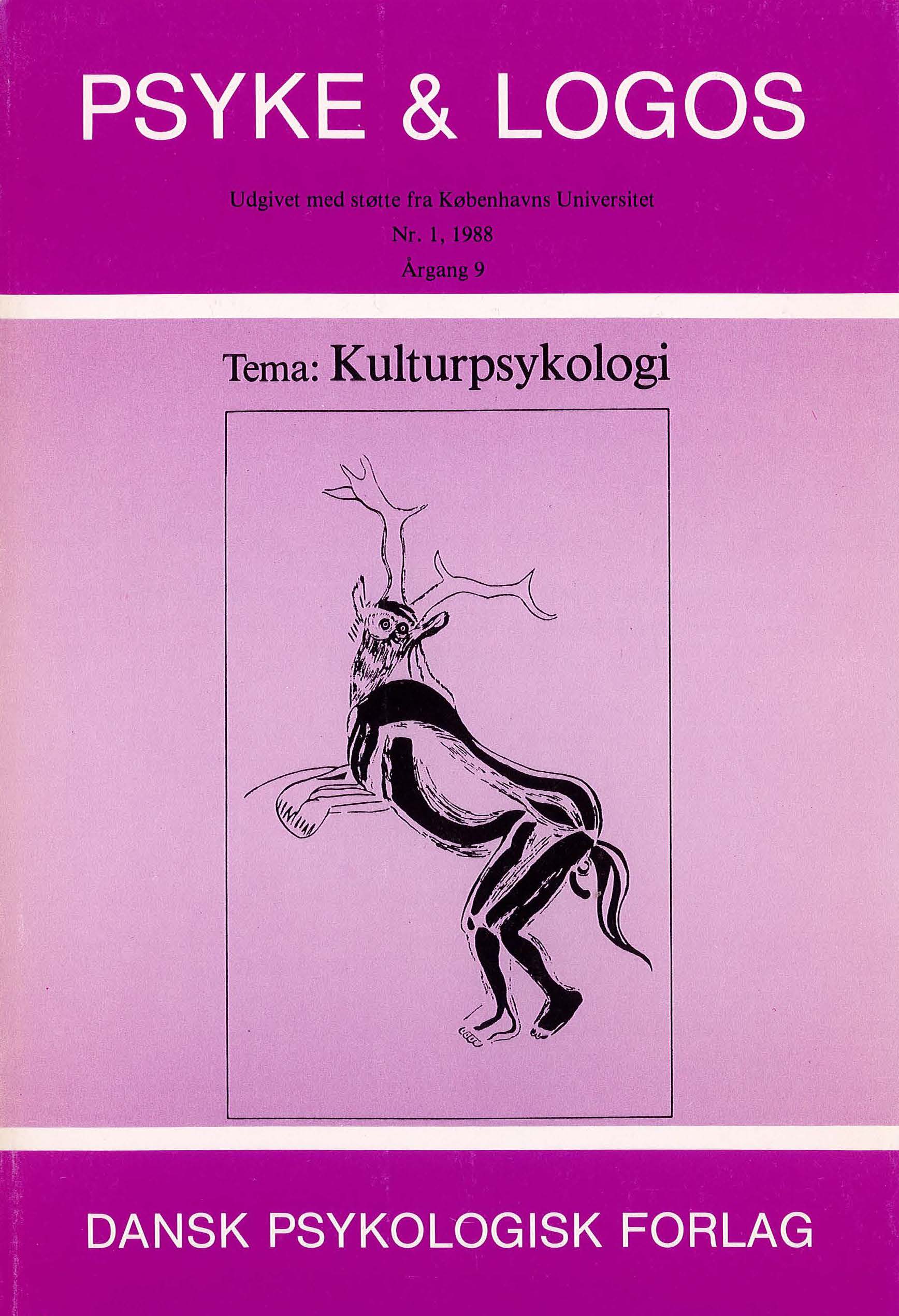Kategorier, modeller og metaforer i kulturpsykologi
DOI:
https://doi.org/10.7146/pl.v9i1.135958Abstract
This article deals with real categorical Fallacy within the humanities - first and foremost within the cultural psychology and branches of knowledge taking psychological points of view. A distinction is made between the cognitive discourse (models or concepts of mentality) and real categories of mentality, being the real mentality of the human beings in different cultures and which is the object of the psychological discourses. The following relations exist: different discourses can alternatively/competitively have the same category of mentality as object or they can qualitatively have different categories of mentality as object.
A categorical Fallacy arises (for instance), when we ethnocentricly try to extend the psychological discourses, being valid for our categories of mentality to other cultures' categories of mentality not being able to be objectified.
In the article a general psychological concept of categories of mentality is elaborated on basis of the concept of meaning of the theory of activity, i.e. about how the mentality of mankind comes into existence in societal relations to the surrounding world, to others and to itself. A concept about metaphors is presented based on the same concept of meaning in order
to prevent real categorical Fallacy. Such a concept of metaphors can be developed to a form of scholarly depth hermeneutics not only being sensitive to cultural specific variations in the models/concepts of mentality, but also to cultural variations within real categories of mentality.
Downloads
Published
How to Cite
Issue
Section
License
Ophavsret er tidsskriftets og forfatternes. Det er gældende praksis, at artikler publiceret i Psyke & Logos, som efterfølgende oversættes til andet sprog, af forfatteren frit kan publiceres i internationale tidsskrifter, dog således at det ved reference fremgår, at den oversatte artikel har et forlæg i en dansksproget version i Psyke & Logos. Artikler kan frit deles og linkes til på forsknings- og undervisningsnetværk (så som Blackboard). Link foretrækkes, fordi det giver oplysning om brug af tidsskriftets artikler.




